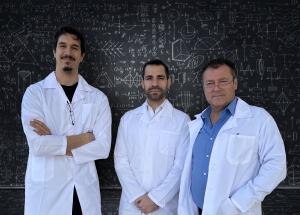Deep Technology Startup ADGS Releases PANDEXIT, a COVID Variant Simulator Awarded by World Innovation Summit for Health
PANDEXIT simulates the spreading of emerging virus variants and discovers the best policies to protect the population and the economy
"Governments are mostly blind in their fight against the COVID-19 pandemic. Facing a mutating virus, decision makers quickly establish lockdowns or curfews without a real foresight about their effect on the pandemic : there is an unwitting blindness about if containment rules will be efficient or overkill, about how many ICU will be required, when or how regular hospital operations will be affected etc... Things will even be more confusing when only part of the population will be vaccinated. It is absolutely critical to understand and visualize the impact of these decisions on a population and an economy before it occurs..." says Billiottet
PANDEXIT sorts and solves these complex equations using mathematical modelling of infectious diseases.
Using in-house Agent-Based Modelling algorithms developed during years of R&D, PANDEXIT goes much deeper into the complexity of human experiences than current models. It is a unique predictive system that simulates the broad social network of a country so that once virus hot spots are known experts can develop models of how, when, and where people are likely to move, interact, and get infected. “We created this leading technology with a strict respect of data privacy" says Billiottet.
PANDEXIT clearly shows the asymptomatic cases that drive the pandemic, the numbers of victims that should be expected in specific communities... it also adapts to virus mutations or simulates mass vaccinations.
With insights gained from PANDEXIT, organizations fighting the pandemic can test policies, procedures, and protocols, and then shift resources, as necessary, to more effectively slow the pandemic’s spread, save lives, and protect the economy. PANDEXIT helps decision makers evaluate the outcome of multiple COVID-19 policies through a reasonable estimation of how the pandemic will evolve under several potential scenarios.
PANDEXIT was awarded by the World Innovation Summit for Health (WISH) in 2020 as one of the fifteen most promising worldwide health innovations.
In October 2020, PANDEXIT models were built and tested for Australia, Singapore, Argentina and Qatar. Forty-day predictive data was very close to the actual pandemic evolution in these countries, displaying sometimes unexpected results that later proved to be accurate, contradicting classic models. PANDEXIT could be the missing tool in the COVID-19 crisis by providing critical information and predictive analysis with a much higher granularity than statistical models.
The distinctive aspects of PANDEXIT include:
- It uses innovative agent-based modelling algorithms for computers to reproduce and analyze human behavior. It builds a virtual country, identical to the real one, with its cities, transportation systems, plants, offices, universities, population density, age distribution, medical preconditions, communities etc… and runs simulations on it.
- Its algorithms are powerful enough to reproduce the massively complex social dynamics of the entire population of a country.
- It uses ethical data to simulate the propagation of infectious disease throughout the population, using a high number of variable parameters.
About ADGS:
ADGS is the very first Deep Technology startup of Qatar, founded in 2015 by a Qatari businessman, a French entrepreneur, and a team of brilliant international scientists. ADGS conducts R&D to create cutting edge algorithms and build futuristic applications. Specifically, ADGS focuses is in the fields of Agent-Based Modelling (Emergent Behavior), Behavioral Biometrics applied to Cybersecurity, Social Dynamics, Natural Language Processing and Big Data analysis using Artificial Intelligence. ADGS raised 2 million USD through private funding and the Qatar Foundation.
Christophe Billiottet
ADGS Computer Systems
+974 6695 4090
christophe.billiottet@adgs.com
Visit us on social media:
Twitter
LinkedIn
Legal Disclaimer:
EIN Presswire provides this news content "as is" without warranty of any kind. We do not accept any responsibility or liability for the accuracy, content, images, videos, licenses, completeness, legality, or reliability of the information contained in this article. If you have any complaints or copyright issues related to this article, kindly contact the author above.


